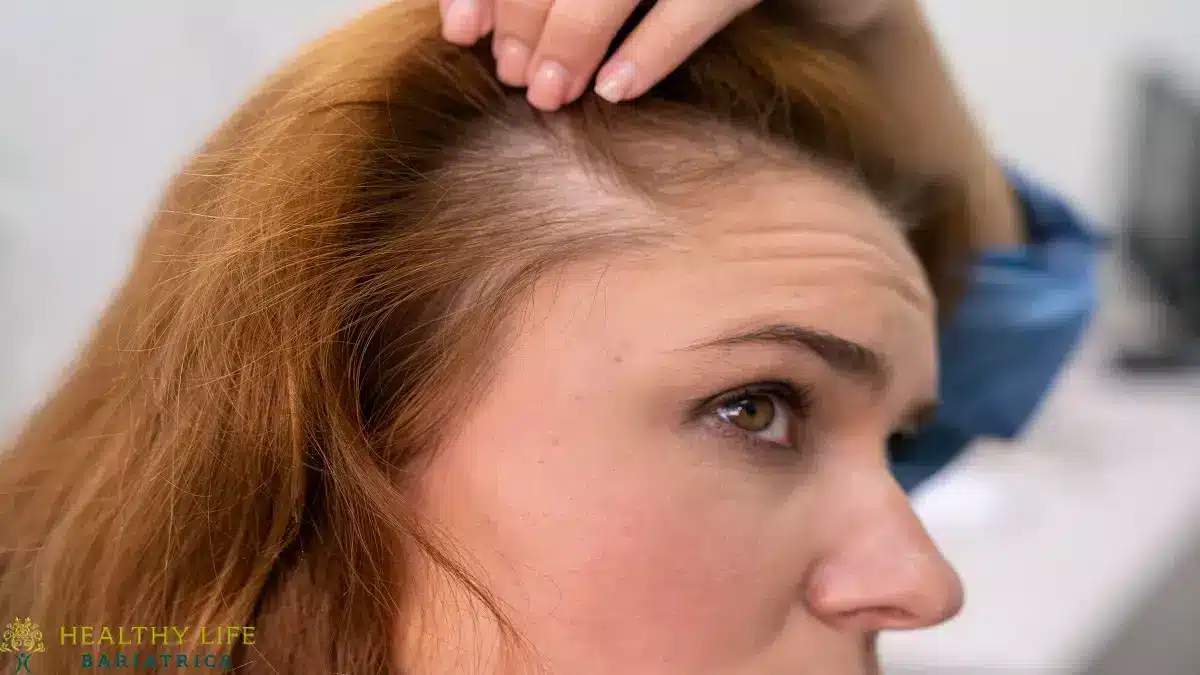Why Does anyone regret getting Gastric Sleeve?
Individuals may regret getting gastric sleeve surgery for several reasons. One major factor is the risk of post-operative complications, which can include infections, leaks, and nutritional deficiencies. These complications can not only lead to additional medical interventions but can also impact overall health and well-being.
Furthermore, the surgery necessitates significant lifestyle and dietary changes. Patients must adhere to strict eating habits and often struggle with cravings, which can lead to feelings of deprivation and dissatisfaction. This adjustment can be difficult, and some may find it challenging to incorporate these changes into their daily lives.
Additionally, the reality of unsatisfactory weight loss results can lead to disappointment. Not all patients achieve their desired outcomes, which can foster feelings of regret and frustration.
Finally, financial considerations play a crucial role. The high costs associated with gastric sleeve surgery, including ongoing expenses for dietary supplements and follow-up care, can add to the regret if individuals feel the financial burden outweighs the benefits of the procedure. Together, these factors contribute to the complex emotions surrounding gastric sleeve surgery and why some individuals may wish they hadn't undergone the procedure.

What are specific Gastric Sleeve Regrets?
Undergoing a gastric sleeve procedure can be a life-changing decision, often resulting in significant weight loss and improved health for many individuals. However, like any medical intervention, it is not without its challenges and potential regrets. Post-operative experiences can vary greatly among patients, leading some to have feelings of dissatisfaction despite the initial success of the procedure.
Common regrets may arise from unrealistic expectations, unexpected changes in eating habits, or emotional hurdles that weren't fully anticipated prior to surgery. Understanding these specific gastric sleeve regrets is crucial for prospective patients to navigate the complexities of this transformative journey more effectively. By exploring the unique challenges and emotional aspects associated with the gastric sleeve, individuals can better prepare themselves for the road ahead, ensuring a more informed and satisfying experience.
Not Realizing How Much Your Relationship With Food Will Change
Gastric sleeve surgery profoundly alters a patient's emotional relationship with food. After the procedure, many individuals experience heightened disinterest in food, as the reduced stomach size diminishes cravings and hunger signals. This shift can lead to discomfort during meals, as consuming even small portions can trigger feelings of fullness or pain.
Mindful eating becomes essential in this new reality. Patients must adapt to smaller portion sizes, focusing on the quality of what they consume rather than quantity. If they fail to heed these changes, they risk digestive issues that can overshadow the dining experience, turning meals into sources of anxiety rather than pleasure.
This transformation extends beyond physical alterations; it calls for a reconceptualization of food and eating habits. By embracing mindful eating practices, individuals can navigate their post-surgery journey more effectively, fostering a healthier relationship with food while avoiding the discomfort that can arise from ignoring their new limitations. Ultimately, understanding and adapting to these changes is key to thriving after gastric sleeve surgery.
Not Learning to Eat Slowly Before Surgery
Learning to eat slowly before gastric sleeve surgery is crucial for a successful recovery and long-term weight management. Eating too fast can lead to overeating or food getting stuck in the newly formed stomach pouch, causing discomfort and complications.
To avoid these issues, practice chewing your food thoroughly and aim for a consistency similar to mashed potatoes. Make tiny bites and take your time to savor each mouthful. Pausing between bites allows your body to register fullness, reducing the likelihood of overeating.
Incorporating mindful eating practices is essential to enjoy food post-surgery. Focus on your meal, eliminate distractions, and truly appreciate the flavors and textures. By establishing these habits before your procedure, you pave the way for a healthier relationship with food, enhancing not just your weight loss journey but also your overall well-being. Remember, the key to success lies in embracing the power of eating slowly and mindfully.
Dealing With Excess Skin
Dealing with excess skin following significant weight loss presents numerous challenges. Factors such as age, skin elasticity, and the amount of weight lost significantly contribute to this issue. As we age, skin naturally loses its elasticity, making it less capable of adapting to the body’s new shape after weight loss.
To manage excess skin, individuals can consider various options. Surgical procedures like skin removal surgery and body contouring offer effective solutions to eliminate surplus skin, resulting in a more contoured appearance. Non-surgical methods, such as radiofrequency treatments and ultrasound therapy, may also provide some skin tightening, though results can vary.
Addressing excess skin can lead to substantial emotional benefits. Reducing the visibility of excess skin can enhance self-confidence, making individuals feel more comfortable in their clothing and during exercise. Ultimately, tackling this issue not only transforms physical appearance but also fosters a renewed sense of personal empowerment and well-being.

Experiencing Hair Loss after Gastric Sleeve
Experiencing hair loss after rapid weight loss is a common side effect, particularly noticeable between three to six months post-surgery. This phenomenon can last up to a year, leaving many feeling frustrated. The primary cause for this hair loss is the stress on the body due to the significant changes it undergoes during rapid weight loss.
To minimize this effect, maintaining adequate protein intake is crucial. Women should aim for about 70 grams of protein daily, while men should target 80-90 grams. Additionally, incorporating vitamin supplements can support hair health during this period of transition.
It's important to remember that while hair loss can be disheartening, it is typically temporary. Most individuals will see their hair return, often growing back thicker and stronger over time. So, while navigating the challenges of rapid weight loss and the accompanying effects, focusing on nutrition and self-care can go a long way in promoting recovery and regrowth.
Body Dysmorphia, Still Seeing an Obese Person in the Mirror
Body dysmorphia can significantly impact individuals after gastric sleeve surgery, as the drastic weight loss may not immediately align with their self-image. Despite losing substantial weight, many individuals continue to perceive themselves as overweight, feeling stuck in an image that no longer reflects their reality. This persistent misperception can lead to feelings of stress and disappointment, as individuals struggle to celebrate their achievements and embrace their new appearance.
The psychological effects can be profound, inhibiting their ability to enjoy the benefits of weight loss, fostering anxiety about body image, and reinforcing negative thought patterns. Over time, reestablishing a positive self-image can take considerable effort, often requiring therapeutic intervention and self-reflection.
A strong support system is crucial during this adjustment period, as it provides emotional encouragement and validation, helping individuals navigate their mental health challenges. Friends, family, and support groups can play an essential role in fostering a healthier perception and reinforcing the journey toward self-acceptance, ultimately assisting in bridging the disconnect between their physical transformation and self-image.
Why Didn't I Get Gastric Sleeve Surgery Sooner?
Many patients who undergo gastric sleeve surgery often express regret for not having the procedure sooner. This is largely due to the significant health improvements that follow, such as the resolution or drastic reduction of conditions like type 2 diabetes and high blood pressure. By shedding excess weight, patients frequently experience enhanced mobility and vitality, leading to a much-improved quality of life.
Gastric sleeve surgery is an investment in one’s life, promoting not just weight loss but also crucial lifestyle changes that foster a healthier future. Patients often find themselves adopting better eating habits and engaging in more physical activity, which further amplifies their health benefits. The emotional relief of overcoming obesity-related health issues can be profound, allowing individuals to fully engage in life again.
As many reflect on their journeys, they can't help but wonder, "Why didn’t I get gastric sleeve surgery sooner?" The answer is clear: taking that leap can be transformative, leading to a longer, healthier, and more fulfilling life.
Why did I regain my lost weight?
Weight regain after bariatric surgery can occur for several reasons. One significant factor is **metabolic adaptation**, where the body adjusts to a lower caloric intake, slowing down metabolism and making weight loss more challenging over time. Additionally, **poor eating habits** can develop after surgery, such as reverting to higher-calorie foods or overeating, leading to weight regain.
To effectively manage weight regain, a **multifaceted approach** is essential. This includes **lifestyle adjustments** such as adopting healthier eating patterns and consistent physical activity, possibly coupled with a gastric sleeve revision if necessary. Ongoing support from healthcare providers—dietitians, therapists, and surgeons—can also play a crucial role in maintaining motivation and accountability.
Furthermore, individuals may deal with the impact of **excess skin** post-weight loss. This can affect body image and diminish self-esteem, which in turn can influence motivation to maintain healthy habits. Addressing both the psychological and physical aspects of weight regain is vital for long-term success in sustaining weight loss after bariatric surgery.

Does anyone Regret Getting Gastric Sleeve Summary
Gastric sleeve surgery can lead to regret for some individuals, primarily due to the emotional and physical challenges associated with dietary restrictions post-surgery. Patients may struggle with the drastic changes in their eating habits, leading to feelings of deprivation or frustration. These emotional hurdles can be compounded by unrealistic expectations of weight loss or lifestyle changes.
Choosing a skilled surgeon is crucial in minimizing regret. A qualified professional provides comprehensive pre- and post-operative guidance, ensuring patients are well-informed and prepared for the journey ahead. Adhering to their advice regarding dietary limitations can significantly impact both physical recovery and emotional well-being.
Moreover, a positive mindset change is essential for success. Engaging with a compassionate medical team can foster a support system that encourages patients to adapt to their new lifestyle. This encouragement can help mitigate feelings of regret and promote resilience during the transition. Ultimately, the right combination of surgical expertise, diligent follow-up, and mental fortitude can lead to satisfying outcomes post-gastric sleeve surgery.




